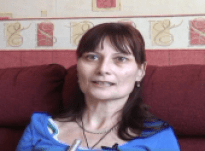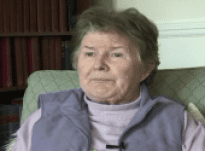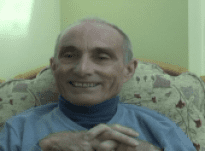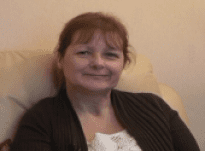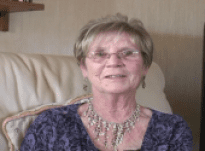
Audrey - Interview 12
Audrey was diagnosed with pancreatic cancer in 2005. She had a Whipple's operation, followed by chemotherapy and radiotherapy. The cancer came back in 2008 and 2009 so Audrey has had more chemotherapy and hopes to stop treatment soon. She feels well.
Audrey is a teacher, now retired. She is married and has 3 children. Ethnic background/nationality: White British.

